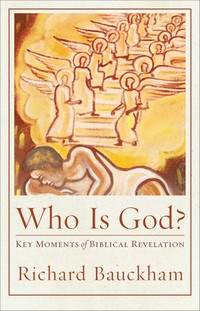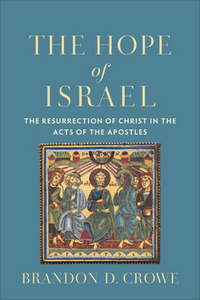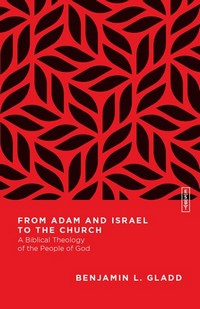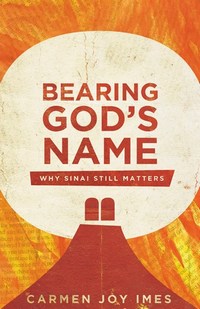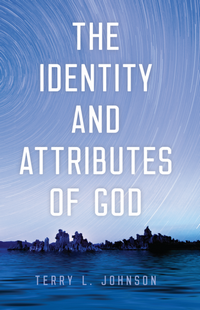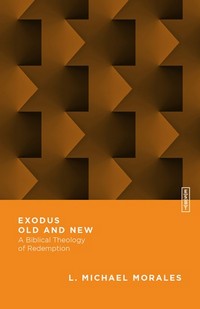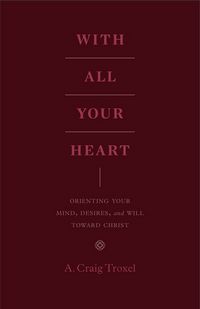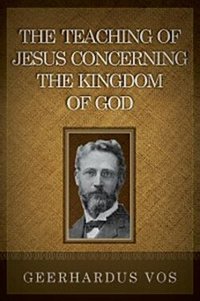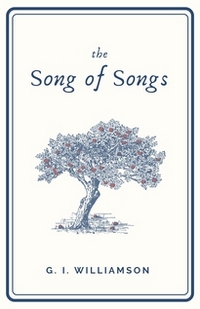I knew I’d done a lousy job of keeping up on my Theology/Christian Living posts this year. But assembling this post let me see just how bad I’d done—five posts this year, and only one from this list made was covered in them.
Maybe that’s part of why I was rejected by NetGalley for every book along these lines I requested this year? In retaliation, I bought every book I was rejected for. That’ll teach ’em…
Anyway, these books are important enough to me—and this category makes up enough of what I read that I figured I’d keep up the tradition of making this list. And I’ll try to do better on this front in 2021.
As always, re-reads don’t count for these lists. It’s a self-imposed rule, but in a year when I re-read Calvin’s Institutes, some Machen and Prayer by O. Hallesby, it’s just not fair to almost everything else I read.
(in alphabetical order by author)
by Richard Bauckham
This is one of those deceptively easy reads that shouldn’t be read easily. Based on lectures that Bauckman has delivered, the book takes a Redemptive Historical approach to God’s revelation of Himself. “Jacob’s dream at Bethel (the revelation of the divine presence), Moses at the burning bush (the revelation of the divine Name), and Moses on Mount Sinai (the revelation of the divine character)…He then shows how the New Testament builds on the Old by exploring three revelatory events in Mark’s Gospel, events that reveal the Trinity: Jesus’s baptism, transfiguration, and crucifixion.” After looking at the particular text, Bauckman then traces that revelation through Scripture showing how the same thought it echoed and expanded throughout.
As these chapters were originally lectures, they’re not full of footnotes—but they’re clearly the product of a lot of scholarship. There’s deep thought here and great spiritual nourishment.


by Brandon D. Crowe
It makes no sense to me at all that there hasn’t been a book-length look at the theme of Resurrection in Acts until now. It’s so clearly important to the message of Acts that you’d think there’d be dozens. But nope.
Crowe does a masterful job of filling that lacuna. It is all over Acts—more than I’d have guessed, too. First, he focuses on the topic in general, then focuses on the speeches/sermons of Peter, then those of Paul, and then those of everyone else. The exegetical material is just Part One, and it’s worth the purchase price right there.
But then he goes on to examine the topic from four theological perspectives, fleshing out the exegetical material and it gets so much richer.
This isn’t as easy to read as Bauckman, but it’s not too difficult if you’re willing to put in the work. Fascinating topic and helpful reflections.


by Benjamin L. Gladd
Gladd traces the idea of the people of God through successive Redemptive Historical eras, showing how each built on the one before and points to the final form in the New Heavens and Earth, fulfilling the original Creation design. A helpful way to look at this topic, it’ll challenge, inform and inspire.


by Pierce Taylor Hibbs
Written twelve years after Hibbs was first diagnosed with an anxiety disorder, he takes a different approach to anxiety disorders than you typically see. It’s not about denying the problem, it’s not about overcoming it, and striving to lead an anxiety-free life. Instead, it’s about relying not on our own strength, but on Christ who is sufficient when we are not; it’s about learning to see what God’s purpose in the suffering is, understanding that His hand is guiding all things—including our problems—so how do we in faith (without denying the suffering) rest in faith.
If like me, you don’t suffer from an anxiety disorder, you have your own challenges in your life, ways in which you suffer. It’s easy, thanks to the way Hibbs wrote this, to see how you can apply these principles to your own circumstances.
Very practical, but not at the cost of truth and theological reflection.


by Carmen Joy Imes
I had some real problems with this book—I quibbled with more than a few points, and flat-out disagreed with others (although I think her arguments are interesting and I’d like to see someone who knows what they’re doing dissect them). And I’m not so sure her thesis is all that revolutionary—I’ve heard it in almost every (maybe every) sermon I’ve heard on the Third Commandment in Confessional Presbyterian and Reformed Churches in the last two and a half decades.
That said, it’s a thesis that more people need to hear. The commandment isn’t primarily about our language, it’s about taking the Name of the Lord our God in the sense of “bearing.” When God’s people call themselves that, certain things are expected of them to not bring shame to that name (which will involve treating His name—and the means by which He is revealed—with the due respect).
She starts at Sinai and then traces the idea (a theme in this post, no?) through the rest of Scripture, showing how God’s people have done this—and how they’ve failed at it, too.
It’s a popularized version of a good portion of her dissertation, and is so accessible it’s ridiculous. Thought-provoking and helpful (even when I think she’s wrong about something), it’s a book I can’t help but recommend. My disagreements (and the way she expressed problems that don’t exist with the Reformed understanding of the topics) led to my reduced rating, not anything to do with the way the book was written.


by Terry L. Johnson
The reason I haven’t written anything about this is simple: I don’t know how to start—or how to finish (or anything in between). This is a modern, less-exhaustive version of Charnock’s The Existence and Attributes of God. Full of quotations and lessons from Puritans and others in church history, this is an excellent introduction (and then some) to the classical doctrine of God so often ignored or downplayed today. If we don’t know who He is, how will we know how to worship and serve Him?
It’s convicting. It’s informative and educational. It’s devotional. It’s probably the best thing that Johnson’s written—and that’s saying something.


by L. Michael Morales
“Morales examines the key elements of three major redemption movements in Scripture: the exodus out of Egypt, the second exodus foretold by the prophets, and the new exodus accomplished by Jesus Christ.” Like so many others I read this year this takes a Redemptive Historical approach seeing the way these ideas play out throughout Scripture, are echoed and expanded in successive eras.
The exodus from Egypt is the template (not the best word, but the only one that comes to mind at the moment) for redemption in general, and we see this figure used time and time again in Scripture. Morales is a helpful guide through this progression.


by A. Craig Troxel
Troxel begins by fleshing out a Biblical understanding of the heart (short version: the governing center of life). That understood, he then moves on to show how we’re to use that heart to fulfill Christ’s commands—how we keep it pure, how we protect it, how we keep it obedient. Most of all, how we respond when we fail (and fail, and fail).
One of the most humbling—yet helpful—books I’ve read in years. Troxel pierces the heart in the best way, so that we can see our need for repentance.


by Geerhardus Vos
This work “surveys the teaching of Jesus concerning the kingdom of God. It covers the kingdom in the Old Testament, the meaning of the biblical words for kingdom and kingship, the present and future aspects of the kingdom, the essence of the kingdom, the relationship between the kingdom and the church, and finally the saving benefits of entering the kingdom…Vos exposited an inaugurated kingdom with a future consummation long before G. E. Ladd popularized it.”
This is a slim, dense volume. Vos demands care and close attention to his work—but it’s so worth it (and after a while, you don’t notice how much you’re working to read). Fascinating and still helpful a century later.


by G. I. Williamson
My original post
Yeah, I gave this one only 3 1/2 Stars, but it’s on this list because it stuck with me. It’s been since April and I’ve thought about this book a few times (definitely during the two times this year I’ve read the Song of Songs). Williamson’s wisdom and carefully Christ-centered approach to the book makes these sermons really valuable.


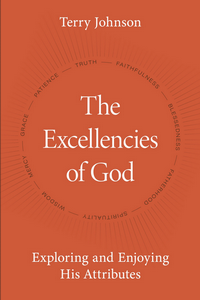 The Excellencies of God:
The Excellencies of God:

![]()



